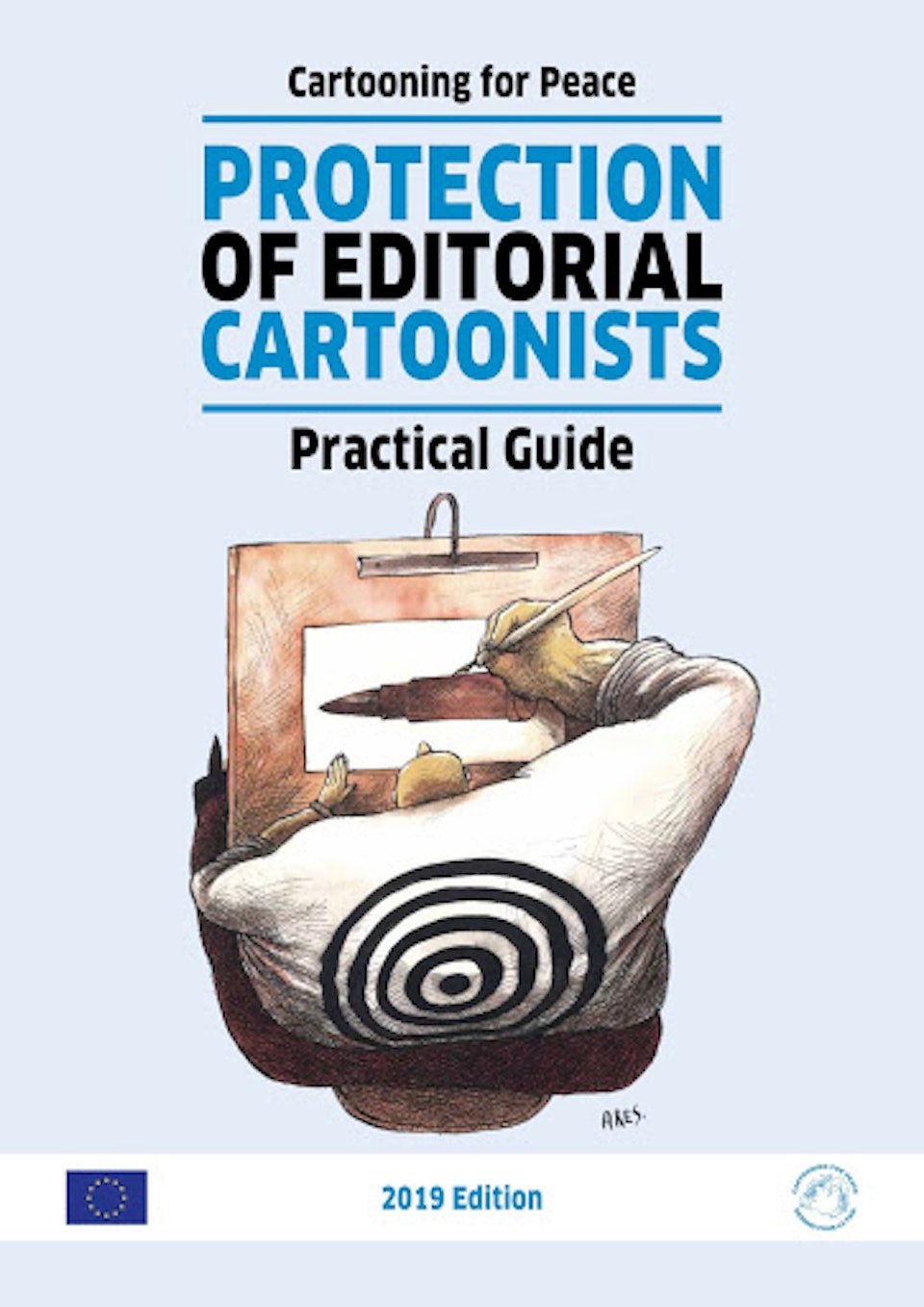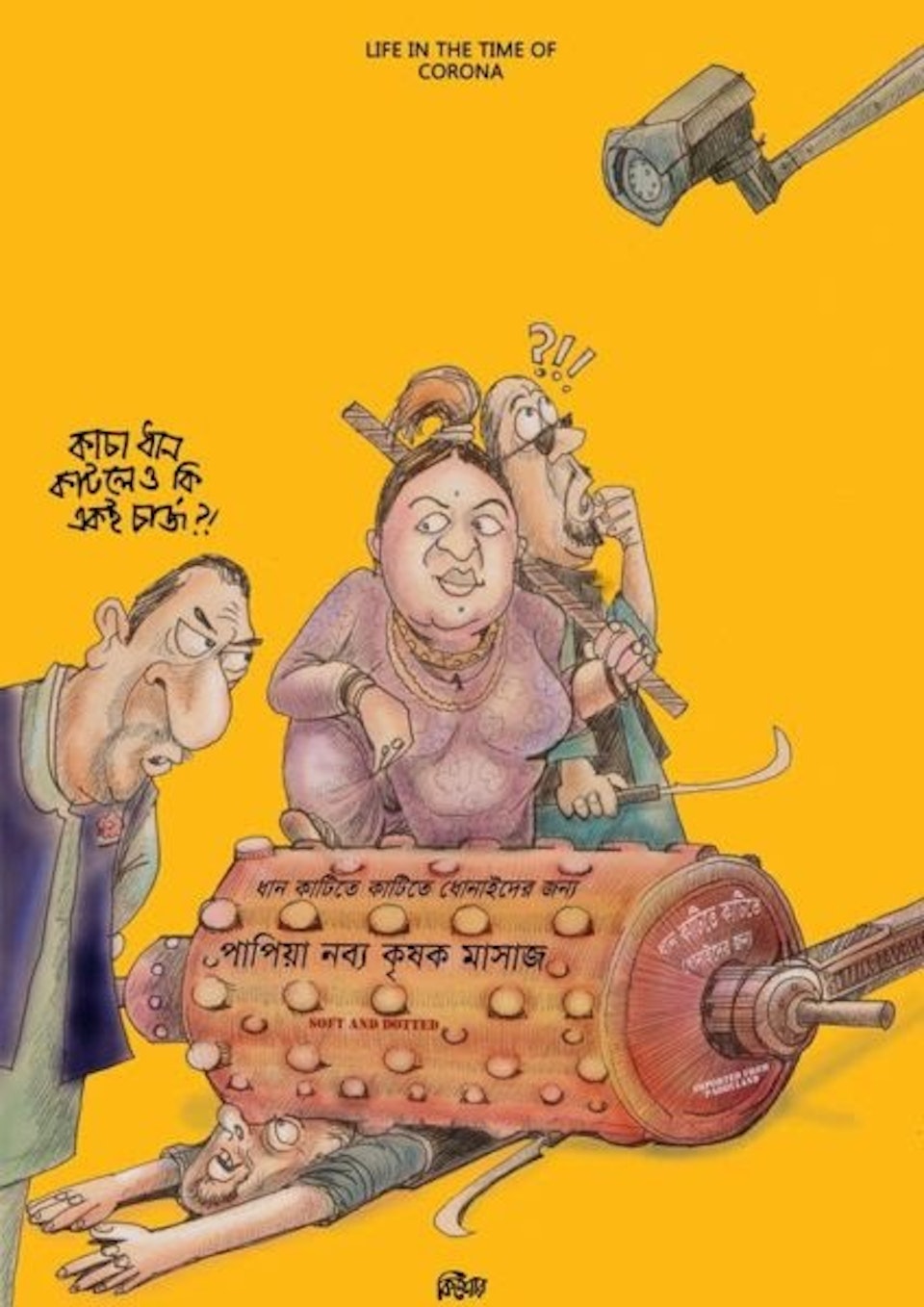Featured Organization
Cartooning for Peace
France

“Laughter is a reflex. It’s a way of creating a bond, a way of helping people to see things in a different way, " says Kak, the current president of Cartooning for Peace. The power of cartoons can be an influential force against the harsh and often violent realities of the world. Political cartoonists around the globe convey a wide array of complex and even controversial topics in one single image, typically coupled with a few words of text. Through this brevity, cartoons are some of the most effective and influential mediums of art because they can reach any type of audience. By their nature – a journalistic and artistic opinion that relies on satire as a means to inform, question, and denounce in a few lines – cartoons frequently depict government figures, religious groups and leaders, and other high-profile entities at the forefront of political or social discourse. Because of their great influence paired with the salience of their work when engaging hot-button issues or lambasting dominant cultural norms, cartoonists thus become common targets of threats and persecution from figures or institutions they depict. Yet, in the midst of such risks, they work to bring difficult discussions to the forefront with one of the most effective tools: humor. Ugandan political cartoonist Dr. Jimmy Spire Ssentongo says that “laughter is one of the everyday forms of resistance.” In light of this thought, Cartooning for Peace was founded in 2006 to protect cartoonists who “fight with humor for the respect of cultures and freedoms.”

Based in France, Cartooning for Peace fosters a space for cartoonists to connect with each other, especially for those who feel isolated due to their inability to work freely in their country. Through their network of cartoonists and other organizations, they push to educate the public about the value of cartooning as a tool for social change and for developing critical thinking, while also raising awareness about the challenges the discipline faces around the globe. Among other activities, they work to achieve this goal through public and private advocacy and by working with a variety of publications, including the Swiss newspaper Le Temps and Le Monde in France. A recent feature in the latter, evincing how cartoons respond to current political events, depicts the impacts of the COVID-19 pandemic in Brazil and critiques the government and President Bolsanaro’s handling of the virus.
Along with their publication collaborations, Cartooning for Peace works to build their own resources for cartoonists, such as a safety guide for editorial cartoonists available in French and English. The guide, which was supported by the European Union, outlines practical steps cartoonists can take to help avoid risk, and what they can do if they encounter it. It was a central resource when ARC was developing its own Safety Guide for Artists. Working with its partners to bring operational and moral support to cartoonists in danger or censored, the organization also alerts the public and authorities on specific cases or on the state of freedom of expression. It recently started a project funded by the Global Media Defense Fund (GMDF), managed by UNESCO, addressing the legal protection of press cartoonists.

Among its efforts to respond to the challenges cartoonists face, Cartooning for Peace coordinates various educational and advocacy programs, such as the major “Cartooning for Peace and Democracy” program (2016-2019), an educational and advocacy-based tool to promote democracy, with the support of the European Union. It focused on nine countries: Morocco, Palestine, Israel, Tunisia, Burkina Faso, Ivory Coast, Mexico, Canada, and Ethiopia. More recent projects include “Cartoons and citizenship: cartooning for democracy and peaceful elections in Ivory Coast” (EU, 2020-2021), “Cartooning to silence the guns” (UNESCO-IICBA, 2020-2021) and “COVID in Cartoons” (UKRI, 2021-2022). Cartooning for Peace also conducts trainings for cartoonists, educating professionals in their pedagogical methodology in order to pave the way for the organization of workshops in schools and prisons, where artists brainstorm their cartoons and meet with young readers. Their goal is to create a strong network of cartoonists and educators who are committed to promoting peace and democracy, to contribute to civic education and media and information literacy and to raise awareness on fundamental rights.

Advocacy is one of the central components of Cartooning for Peace’s work, aimed at raising awareness and engaging public and private governments or mechanisms on the threats that cartoonists face. Through their alerts system, visitors of Cartooning for Peace’s website can be informed about the situation of cartoonists around the world. For example, when Bangladeshi cartoonist Ahmed Kabir Kishore was arrested under the draconian Digital Security Act in 2020 for publishing a series of cartoons on Facebook called “Life in the Time of Corona,” Cartooning for Peace published several statements calling for his release; after ten months of persistent advocacy alongside organizations like ARC and PEN America, during which Kishore was tortured and a fellow detainee passed away, he was finally released on bail. Tragically, Kishore’s case is only one of many around the world. Because of organizations like Cartooning for Peace, such cartoonists who have had to face threats, repression, and persecution are not forgotten.

Cartooning for Peace emphasizes that they cannot do the advocacy work at their capacity without their network of over 225 cartoonists around the world. Because they are connected to so many artists and organizations who work to protect cartoonists, they have a comprehensive alert system that allows them to monitor the suppression of free expression. They are one of ARC’s key partners and frequently join us for joint initiatives and campaigns.
Nicolas Vadot, a cartoonist and member of Cartooning for Peace, emphasizes that the powerful combination of humor and art inherent to the medium can be levied to fight oppressive powers. He also stresses the importance of connection between cartoonists, as it gives practitioners the opportunity to not only share their artistic ideas and struggles, but provide different perspectives of political discussions through their artwork. “When you meet cartoonists from different parts of the world, who do not have the same cultural or societal references as you, and look at their work, you open yourself to new ways of seeing and being,” he said in an interview. As Vadot and Cartooning for Peace recognize, though cartooning may seem like a solitary job, in reality, it can become a global movement promoting free artistic expression.

By Statz Tatsumi Saines, May 2021. Statz is a recent graduate of Mount Holyoke College, where she received a BA in English.